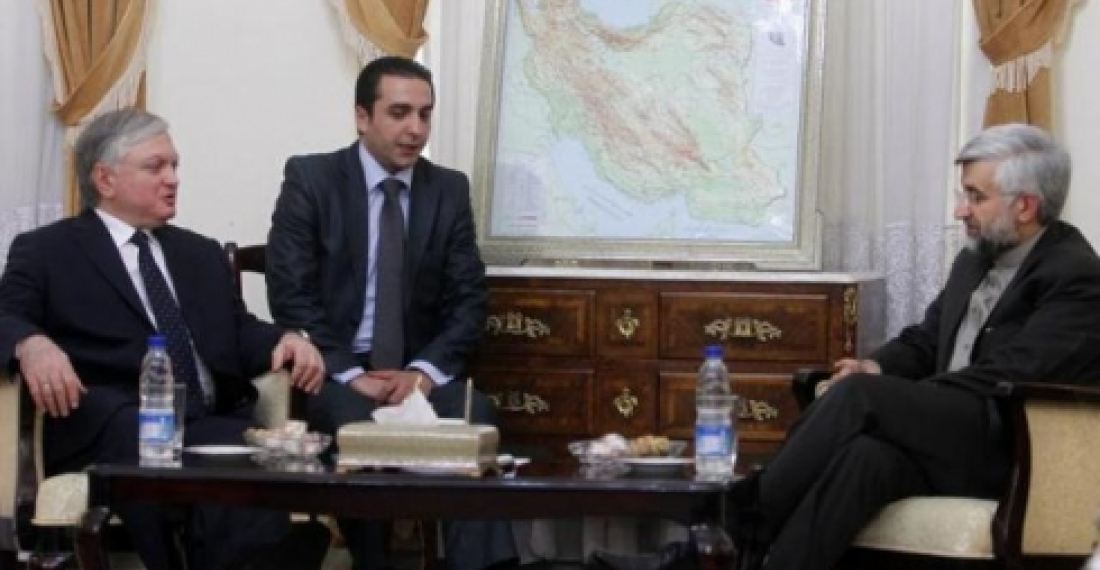Armenian Foreign Minister Edward Nalbandian was in Tehran yesterday for meetings with senior Iranian Officials. The Iraniain State News Agency IRNA reported that Nalbandian had meetings with the Foreign Minister Ali Akbar Salehi, with the National Security Advisor Saeed Jalili and with the Speaker of the Iranian Parliament, Ali Larijani who all expressed expressed support for the development of relations between Iran and Armenia.
IRNA reports that the Speaker of the Iranian Parliament told the visiting Armenian Minister that “The policy of the Islamic Republic of Iran is improving relations with the regional countries and settling the disputes within the framework of negotiation and mutual understanding.” Referring to joint economic projects as a step forward in consolidation of economic ties between the two countries, Larijani noted that strengthening the communication between the private sectors of both countries can help the atmosphere of economic cooperation between two countries to become beneficial to both countries.
Armenian Foreign Minister Edward Nalbandian for his part said that the prospect of relations of Iran and Armenia is very bright. “Armenia pays heed to establishment of friendly ties with the Islamic Republic of Iran in all areas,” the Armenian foreign minister added. Nalbandian underscored the role of trade and economic cooperation between Iran and Armenia for enhancement of bilateral ties, according to IRNA
Commonspace.eu political editor said in a comment that "Yerevan may consider that this is a good time to try to exploit difference that have arisen between Baku and Tehran. Iran has over the years maintained good relations with Yerevan and tried to stir a neutral role in the context of the Karabakh conflict, much to Azerbaijan's irritation. Armenia's room for manoeuvre on this issue is however limited since it cannot afford to rise the suspicions of the United States and the EU who are at the moment involved in a stand-off with Tehran over the issue of the Iranian nuclear programme. Iran is scheduled to hold talks with the International Atomic Energy Agency on 13-14 May, and has recently been sending conciliatory signs to the international community."
source: commonspace.eu with IRNA.
photo: Armenian Foreign Minister Edward Nalbandian meeting the Secretary of the Iranian National Security Council Saeed Jalili in Tehran on 29 April 2012







